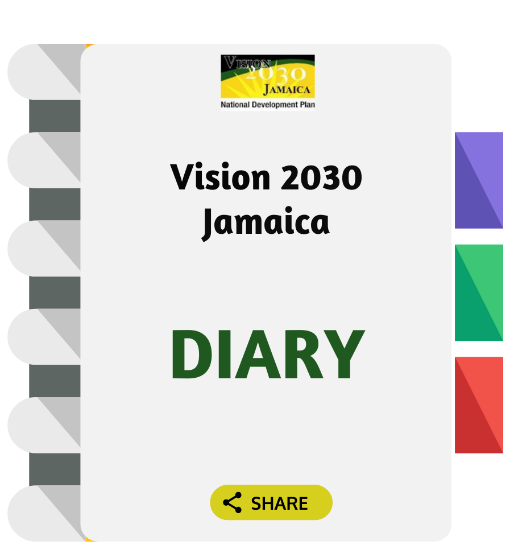Blog
Jamaica’s Tourism Sector is Resilient (September, 2022)

Jamaica’s Tourism Sector is Resilient
Written By: Prof. Lloyd Waller, Executive Director
Global Tourism Resilience and Crisis Management Centre, University of the West Indies
Despite cyclical disruptions such as the current COVID-19 pandemic, Jamaica’s resilient tourism industry continues to be one of the main drivers of the country’s long-term economic development. It is the largest generator of foreign exchange, a major contributor to the GDP and employment, and has been among the country’s fastest-growing industries for several decades. Tourism directly employs 175 000 Jamaicans and generates indirect employment for another 354000 Jamaicans. It drives 15.0 per cent of construction, 10.0 per cent of banking and finance, 20.0 per cent of manufacturing and 21.0 per cent of utilities, agriculture, and fisheries. Overall, the tourism sector has grown by 36.0 per cent over the past 30 years against a total economic growth of 10.0 per cent.
The tourism industry has generally positioned itself as a strong pillar of economic development in Jamaica mainly because of the vital economic linkages it has facilitated within the broader macroeconomic context. The tourism value chain already incorporates several sectors. Its promotion requires the construction and operation of hotels, restaurants and other tourism-related facilities through backward linkages and the development of basic infrastructure services, such as energy, telecommunications and environmental services, agriculture, manufacturing and other support services. Tourism has also created a wide range of forward linkages with sectors supplying services consumed by tourists. These include financial, telecommunications, retail, recreational, cultural, personal, hospitality, security and health services. In addition, the strengthening of the tourism sector has required the development of other tourism-supporting infrastructure such as airports, proper roads, ports, hospitals and banks, which are essential for providing access to high-quality services and creating a competitive tourism destination.
These preceding data on the tourism value chain in Jamaican confirm the vital importance of tourism to the country’s macroeconomic growth. In fact, it is impossible to have a vibrant Jamaican economy without a strong tourism sector. This has been further confirmed by the on-going COVID-19 pandemic. In 2020, the Planning Institute of Jamaica (PIOJ) indicated that an overall year-to-year decline of 18.0 per cent in GDP growth within the Jamaican economy was mainly attributable to a precipitous 87.5 per cent contraction of the hotels and restaurant industry between 2019 and 2020. The impact of tourism decline in Jamaica has been made worse by the fact that other key sources of incomes/revenues, foreign direct investment and remittances, are also at risk, given that primary suppliers—the United States, the United Kingdom and Canada—have also faced severe economic setbacks. The undiversified nature of the Jamaican economy further compounds the adverse economic consequences of prolonged disruption to the tourism industry.
While the COVID pandemic has presented the greatest challenge to the tourism industry in modern history, the strong resurgence of the sector over the last several months has demonstrated the tourism sector’s “tried, tested and proven” adaptability and resilience. Since the tourism sector reopened in June 2020, it has continued to weather the proverbial storm and has remained open for business amid cyclical threats associated with new COVID variants, new waves of outbreaks, tightening travel restrictions and the reintroduction of border closures by some countries. Indeed, with several major hotel construction projects in the pipeline, Jamaica is about to enter its largest wave of tourism development and expansion in recent history. The fast pace of the recovery of the tourism sector from the COVID-19 pandemic mimics the sector’s pace of recovery from previous shocks including the SARS Outbreak 2002–2004; the H1NI Outbreak 2009; the Global Financial Crisis 2007–2009 to name a few.
Globally, there has, however, been disparity in the pace of recovery of tourism across countries and regions. This largely reflects differences in levels of prioritization and investment in building resilient tourism architectures before and during the pandemic. Tourism resilience is defined as “the ability of social, economic or ecological systems to recover from tourism induced stress” (Tyrell, Johnson, 2008). Other interpretations of tourism resilience emphasize the capacity of destinations to not only quickly recover from shocks but also to anticipate these shocks and put in place effective measures and strategies that may either prevent them from happening or mitigate their impact.. Thus, resilience is the catalyst of a country’s ability to not only track disruptions, like a pandemic, an earthquake, a hurricane, cybercrimes, economic downturns, or terrorism, but also to mitigate them, to recover quickly, and continue to thrive.
From the perspective of the Jamaican tourism sector, recovery has been aided by the continuous building out of a robust tourism resilience architecture that has combined elements such as continuous development, enforcement and monitoring of standards and protocols, strong political leadership, and providing a constant balance between warning and reassurance. It also includes human resource training, research and development, product diversification and segmentation, continuous risk-mapping, the development of sustainable strategies and policies, leveraging the power of transformative technologies, improving internal and external coordination among stakeholders, timely and appropriate fiscal interventions. Notably, a focal point has been established – the Global Tourism Resilience and Crisis Management Centre – for coordinating destination preparedness, management, and recovery from disruptions and/or crises that impact tourism and threaten economies and livelihoods.
The resilience of the tourism industry in Jamaica has unequivocally, over the past two years, remained competitive among the top tourism destinations of the world because of the integrity of the country’s product which has remained safe, secure, and seamless. During the pandemic, the country’s Tourism Ministry took strong and decisive actions to contain the spread of the virus. It collaborated extensively with tourism partners and other stakeholders to develop an even more resilient approach to tourism. To ensure that the industry reopened safely, seamlessly, and responsibly, protocols to ensure destination assurance were developed through partnership among the Ministries of Tourism, Health and Wellness, National Security, and Foreign Affairs and Foreign Trade, and in consultation with a number of international tourism bodies. The protocols were designed to support and maintain consistent standards across all sectors of the industry.
The Ministry of Tourism also introduced its Tourism Resilient Corridors. The resilient corridors, which encompass most of the island’s tourism regions, allow visitors to enjoy more of the country’s unique offerings, as many COVID-19-compliant attractions, located along the areas, are authorized for visits by the health authorities. The Resilient Corridors, which cover more than 85.0 per cent of the island’s tourism product and include less than 1.0 per cent of the population, have recorded an infection rate of less than 1.0 per cent over the past year; demonstrating the clear success of the programme, the only one of its kind in the Caribbean.
Jamaica’s tourism resilience-building framework has also emphasized six pillars that reflect a forward-thinking vision for the sustainable growth of the tourism industry in the post-COVID era. They are facilitating investments; strengthening linkages; investing in human capital development; diversifying the tourism product; building out a supportive tourism infrastructure; and creating a Destination Assurance Framework that assures an authentic, safe and seamless visitor experience.
In conclusion, Jamaica’s resilient tourism industry is indispensable to the country’s economic recovery from the COVID-19 pandemic. It is also a catalyst of the country’s path to sustainable development because of its potential to unlock opportunities in key areas of sustainability such as inclusive and sustainable economic growth; social inclusiveness, employment and poverty reduction; resource efficiency, environmental protection and climate change mitigation and adaptation; cultural values, diversity and heritage and mutual understanding, peace and security. Accordingly, sustained and dedicated efforts are required by all stakeholders to ensure that the sector maximizes its full economic potential and remains resilient and competitive.
Up Next: A Suh Granny Seh: Chicken Merry Hawk deh Near! (October, 2022)



